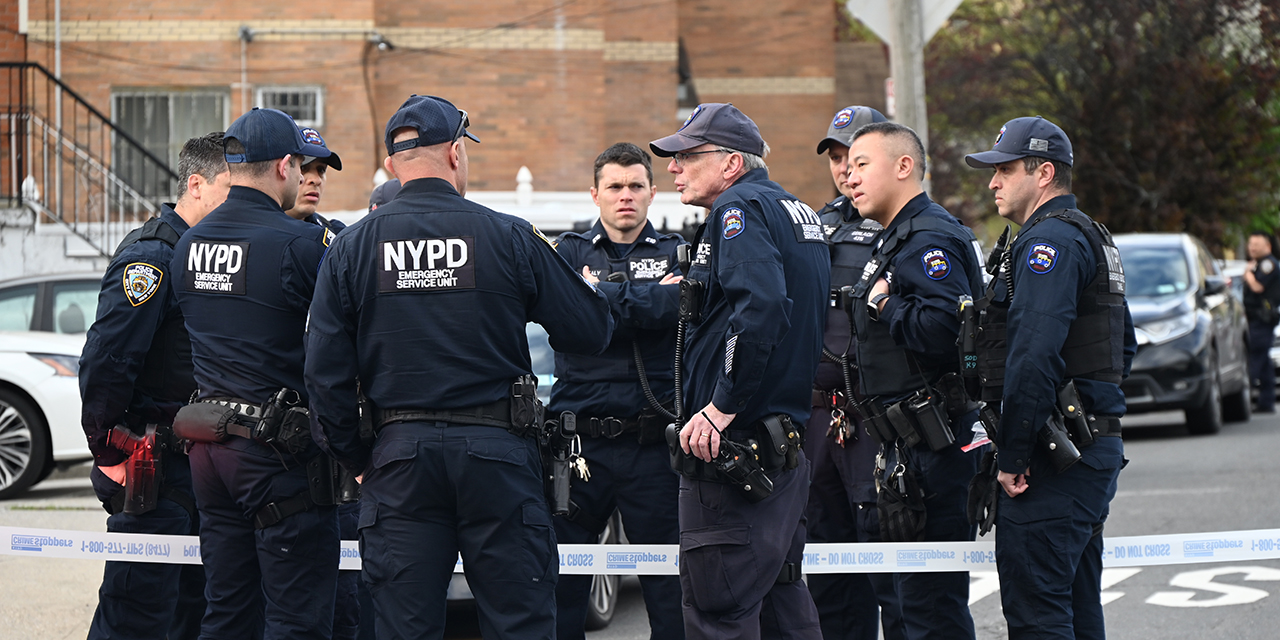There’s never any excuse for corruption, but, as good corporate risk managers know, one way to prevent fraud and theft is to reduce the temptation for fraud and theft. Implement checks and balances, so that no one person is solely in charge of making critical financial payouts. Put bluntly: don’t leave money lying around if you don’t want someone to grab it. As New York mayor Eric Adams finds the city he runs engulfed in scandals, details of the emerging investigations into city hall and top city agencies hint at how to prevent such scandals in the future. The way that New York handles its noise-complaint and building-safety inspections—relying on opacity and inconsistency—is the city-government equivalent of leaving money on the table for corrupt officials to grab. It doesn’t have to be this way.
After nearly a year of federal scrutiny, New Yorkers finally have specific allegations of wrongdoing to consider. First, this week, federal prosecutors accused two former longstanding fire department chiefs, along with a partner, of accepting nearly $200,000 in bribes from a purported third-party “expediter” working with developers on at least 30 projects, so that the fire department would, well, expedite inspections of their buildings ahead of others. Jumping the line was important to the developers, as they needed certain safety certificates to open for business. This scandal actually predates the Adams administration by several months, and the mayor isn’t implicated, though he is potentially involved in a similar case for an expedited inspection of a new building owned by a Turkish developer, whose owners were key mayoral donors.
Second, federal investigators are looking into whether James Caban, brother of just-resigned Adams police commissioner Edward Caban, took money from bars and restaurants to secure leniency (it’s not clear how) from NYPD officials on noise and other quality-of-life complaints. One bar owner has bravely come forward and accused Caban frere of extortion.
Both of these alleged or reported scandals could have been averted with two old-fashioned tricks: consistency and transparency. A developer should have to log a request for a fire-suppressant system inspection or other inspection on a publicly available website and get an estimated wait time, available for him and for all competitors to see; in turn, he can see his competitors’ requested inspections and wait times. Anyone trying to cheat the line, whether by a direct approach to a city official at a dinner or indirectly, by using an “expediter,” should be told: there are no special favors, and moreover, the automated, public viewable system precludes even the possibility of a special favor, as everyone will see it and know about it immediately.
The city already has the base of what could become such a system to prevent noise-code enforcement corruption: 311. Noise complaints to the city’s two-decade-old semi-automated complaint system have soared since the pandemic. Through mid-September, New Yorkers have made nearly half a million noise complaints this year, up from 350,000 during the same period in 2019.
The NYPD handles most—440,000—of these complaints. But it closes out the majority of them without issuing a fine—in only 2,832 of 439,000 closed cases from this year did the NYPD issue a summons. In more than one-third of cases, the resolution reads only that police observed “no evidence” of a violation. In another 41 percent, the NYPD took some specified “action.” Complainants have regularly alleged that the NYPD closes out a case without even sending an officer to inspect the noise condition.
Why not add some discipline to this process? A city-issued, hand-held noise meter could automatically record and publicly report via 311 the data it collected, to ensure that the police officer has indeed inspected a noise complaint and what the result, unfiltered by subjectivity, was. Such a recording system would likely reveal a manpower shortage. One non-corrupt reason why the NYPD closes out so many complaints without adequate inspection is that the department cannot handle the workload.
A semi-automated system could reduce this burden. Noise readings would reduce the need for armed officers to conduct these inspections, as civilians could handle much of the work. In many cases, the inspection would involve no interaction at all with the restaurant or homeowner. If the noise violates the city’s maximum limits from the street, sidewalk, or neighbor’s house, the inspector could issue a violation without ever knocking on the door.
Such semi-automation, coupled with consistency, would over time reduce pleas for special favors, whether from developers or bars. In the case of building inspections, it would eventually speed up work for all developers, as the city’s most powerful real-estate voices would have an incentive to improve response times overall, rather than just for themselves. In the case of noise, it would also eventually reduce complaints, as restaurant owners and party hosts would know to expect a consistent, predictable fine for unlawful behavior—no excuses given to your favorite cop who might enjoy some free drinks with his friends on his night off.
Just as important, such a system would give corruptible elected officials, appointees, supervisors, and inspection staff a ready answer for would-be “expediters” and bribers: “I’d love to help you, but I have no control over it.” Such definitive answers might even save some people from federal prison sentences.
Photo by Andrew Lichtenstein/Corbis via Getty Images





